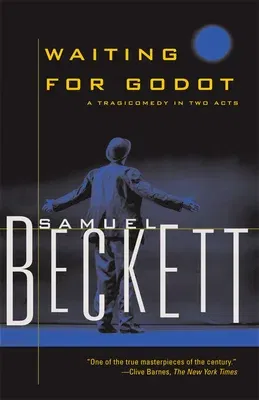Samuel Beckett
(Author)Waiting for Godot: A Tragicomedy in Two ActsPaperback, 17 May 2011

Qty
1
Turbo
Ships in 2 - 3 days
Only 4 left
Free Delivery
Cash on Delivery
15 Days
Free Returns
Secure Checkout

Part of Series
Beckett, Samuel
Print Length
128 pages
Language
English
Publisher
Grove Press
Date Published
17 May 2011
ISBN-10
080214442X
ISBN-13
9780802144423
Description
Product Details
Author:
Book Format:
Paperback
Country of Origin:
US
Date Published:
17 May 2011
Dimensions:
20.57 x
13.72 x
0.76 cm
ISBN-10:
080214442X
ISBN-13:
9780802144423
Language:
English
Location:
New York, NY
Pages:
128
Publisher:
Series:
Weight:
108.86 gm